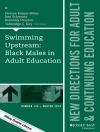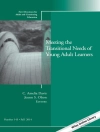This book examines the shift in doctoral co-supervision from traditional hierarchical approaches to team-based models. Authored by international experts in doctoral education, the 14 case studies critically assess co-supervision within distinct institutional and national contexts, and indicate shifts in doctoral education and the rise of co-supervision models. The case studies offer insights into national and institutional policies, mentoring programs, workload distribution, conflict mitigation, and the intricacies of co-supervision, including role management and power dynamics. The book also highlights challenges and proven good practices for academics who are considering or experiencing co-supervision.
Cuprins
Introduction.- Australia.- China.- India.- Malaysia.- Mexico.- New Zealand.- Russia.- South Africa.- Spain.- Sweden.- Turkey.- United Kingdom.- United States.- Conclusions.
Despre autor
Vijay Kumar is an Associate Professor of Higher Education at the University of Otago in Aotearoa New Zealand. He is the first person outside the United Kingdom to attain recognition as a research supervisor by the UK Council of Graduate Education. He has led capacity building programmes for doctoral supervisors in 45 universities spanning 24 countries. His research interests are in the areas of doctoral supervision, feedback in supervision, and doctoral examination. One of his scholarly contribution, co-edited with Stan Taylor and Sharon Sharmini, titled ‘Doctoral Examination: Exploring Practice Across the Globe’ (Routledge, 2023) provides a rigorous analysis of doctoral examination practices in the main doctoral awarding countries.
Navé Wald is a Senior Lecturer at the Higher Education Development Centre (HEDC) of the University of Otago in Aotearoa New Zealand. His research and teaching are mostly in the areas of assessment practice and critical thinking in higher education, with doctoral studies also being a recent area of interest. Navé’s academic background is in economics and human geography, and his work in the field of higher education is mostly qualitative and includes empirical as well as conceptual/theoretical issues pertaining to both policy and practice.












